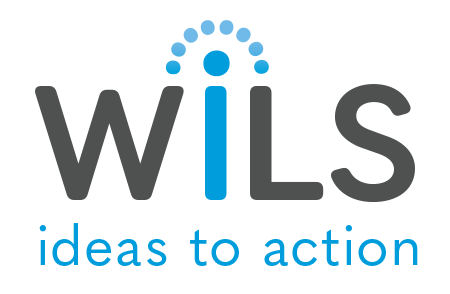One of our greatest joys at WiLS is hearing our members tell the stories of the big and important work they are doing – interesting new projects or initiatives, or even interesting and new approaches to old projects. And, in addition to hearing about it, it makes us even happier when we can share those stories with other members. Each month, WiLS is proud to feature an interview with one of our library members. This month, we get the insights of Carrie Kruse, Director of College Library at UW-Madison.
If you have questions about this interview or what to suggest someone for us to interview, contact Andrea Coffin at acoffin@wils.org.
Why did you, personally, choose to work in libraries? I started working in libraries in high school, essentially because it was a good part-time job for a teenager. That led me to get a job in the library at Earlham College, where I received my undergraduate degree. So when I started a graduate degree in English at UW-Madison, the first thing I did was look for a student library job at the UW. Later I decided that scholarship in literature wasn’t really what I wanted to do as a career, and I fell into librarianship as a natural next step, having always held library jobs as a student. My mother was a librarian as well, which I’ve always noted made it *less* likely I would be one too, but in fact growing up with libraries as a big part of my life did make it seem almost inevitable. I get very excited about librarianship as a profession because of the great role libraries play in society, not just around issues of literacy and education, but also on important information policy issues, such as intellectual freedom.
What is unique about the culture of your library? How do you influence it? College Library at UW-Madison plays a unique role on campus because while there are many (many) libraries, College is the only one with a primary focus on students, as well as the fact that the library has no specific subject focus. Our collections and services support all disciplines at an introductory level. With the student focus, we make our learning spaces a priority and our policies are very generous toward the student studying experience. For example, we have 24-hour service, five nights a week during the regular semesters and allow food &drink throughout the library. We also have an opportunity to support campus instructional initiatives, such as the provision of active learning spaces that support the flipped classroom pedagogy, and classroom and service support for digital media courses and assignments. Our collections do not serve any archival purpose, and instead focus on high-demand, current materials. We also get to offer a small recreational collection of DVDs, video games, audiobooks and popular fiction and non-fiction. It’s like having a mini public library on campus. In terms of my influence, I have the pleasure of leading a library that is encouraged to innovate and experiment. I get to say “let’s try it!” a lot. My goal is to support the creativity and innovative ideas of others and bring those ideas in alignment with our overall mission.
What do you think is important to know about the patrons or community you work with? What helps you understand those needs? We primarily support undergraduates at College Library, especially their first couple of years where academic research is new. One thing that’s important to understand is that they usually need to understand the whole context of university-level teaching, learning and research and how their assignments fit into the academic ecosystem of knowledge sharing. All of our instruction and reference service is based on wanting to help undergraduates find how their work fits in to this bigger picture. Many assignments are based on teaching the research process rather than research in a specific discipline, so they often get to choose their own topics. We need to stay in touch with topics of interest in order to be helpful, so keeping a finger on the pulse of popular culture is important to understanding our patrons. They also help us keep on top of technology trends through their requests for equipment that they can check out from the computer lab. We actively seek student input on changes to collection and technology materials and services. Our student employees help us immensely with this task and we value their suggestions and let them know that they can have an impact on things the library can offer.
What big ideas are being worked on at your library? What problems are being solved? Meeting the learning spaces needs of campus and how the libraries can fit into solutions has been a main focus for us in the past few years. We developed a clear vision for creating multi-purpose spaces that can support instructional initiatives and academic support services while also providing collaborative study spaces. The partnerships we have developed around provision of services and instruction in our spaces have definitely complicated the notion of “what’s happening” in the library on any given day, but it’s been an exciting journey and the library has received significant attention from campus administration in helping better understand how libraries can support learning in new ways. One notion that has been identified as a library contribution to the campus is our role as “neutral” space, which has implications for cross-departmental and interdisciplinary support.
